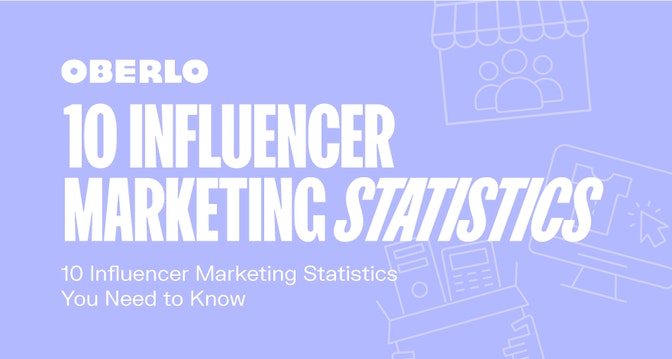“Really? There are search engines other than Google?Why?”
I feel ya.
It’s no secret that Google rules the online search world, but thereareother options available.
What’s more, some of these alternative search engines are hugely popular in their own right – they just don’tappearvery popular when compared to the colossal titan that is Google.
Some of these alternative search engines seem like ancient relics left over from the birth of the internet many moons ago.
Others dominate a specific region, such as China, South Korea, or the Czech Republic.
So buckle up.
Here are the top search engines in the world.
Post Contents
- The Best Search Engine in The World: Google
- Search Engine #2. Bing
- Search Engine #3. Baidu
- Search Engine #4.Yahoo!
- Search Engine #5. Yandex
- Search Engine #6. Ask
- Search Engine #7. DuckDuckGo
- Search Engine #8. Naver
- Search Engine #9. AOL
- Search Engine #10. Seznam
- Bonus Search Engine: Ecosia
- Summary
- Want to Learn More?



The Best Search Engine in The World: Google
Worldwide Search Engine Market Share:92.18%

The search engine is so popular that it’s many times larger than all of the world’s other search engines combined.
Specifically, Google currently holds a whopping92.18 percentof theworldwide search engine market share.

The search engine was born in 1996 by Sergey Brin and Larry Page, but here’s the fun part: the two partners actuallyoffered to sell Googlein 1999 to internet company Excite for just $750,000.
Excite rejected the offer and have spent the last 20 years kicking themselves.
Today,Googleand its parent companyAlphabetare worth a staggering $750+ billion.
As a result, Page, Alphabet’s CEO, is the eighth-richest person in the world with areported net worthof $53.5 billion, and Brin, Alphabet’s President, is the ninth-richest person with a reported net worth of $52.1 billion.

Also, fun fact: The name “Google” is derived from the word “googol.”
A googol is a mathematical term meaning “10 raised to the power of 100” or 1 with 100 zeros after it.
These days, Google is far more than a search engine.
The company has developed manyother software solutionssuch as Google Drive. It ownsYouTube, has developed a line of smartphones and laptops, and has even created self-driving cars.
Google also powers other search engines – includingAsk, which is the sixth largest search engine in the world.
搜索引擎巨头也不断updating itssearch engine results pageto provide a range of helpfulcontent formats, such asGoogle’s Featured Snippets.
All hail the mighty Google.
Search Engine #2. Bing
Worldwide Search Engine Market Share:8.04%

Bingis the second largest search engine in the world with an 8.04 percent market share
While Bing is small in comparison to Google, it maintains a respectable market share in many countries.
The search engine is owned and operated by Microsoft and has its origins in the previous search engines MSN Search and Windows Live Search.
Just like Google, the search engine also filters search results into different tabs such asimages, videos, maps, and news.

Unlike Google, Bing’s homepage always features a stunning image and news stories.
In July 2009, Microsoft and Yahoo! announced a deal in which Bing would power Yahoo!’s search engine – which is currently the fourth largest search engine in the world.
Businesses shouldn’t disregard this search engine.
Although it doesn’t have as many users as Google, Bing still receives1.3 billion visits per month.
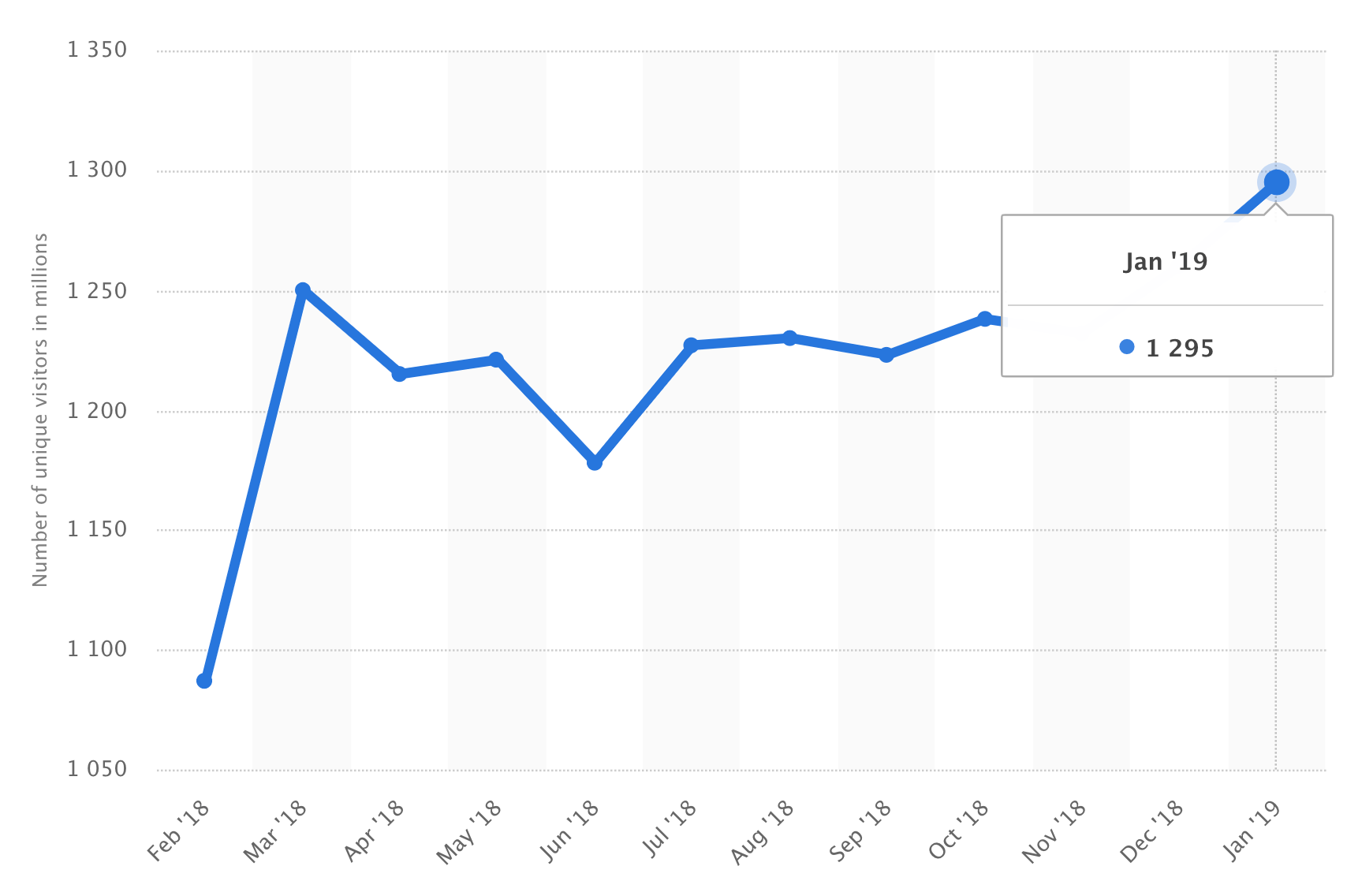
Plus, with most businesses and experts focusing their attention on Google, there’s less competition on Bing.
So, BingadvertisingandSEOare certainly worth considering.
Search Engine #3. Baidu
Worldwide Search Engine Market Share:7.34%

MeetBaidu, the third-largest search engine with a 7.34 percent market share.
This search engine is China’s largest. In fact, Baidu absolutelydominatesthe Chinese market with74.73 percent of the marketas of February 2019. In comparison, Google has managed to capture only 2 percent of China’s search engine market.

Baidu was founded in 2000 and has its headquarters in China’s capital, Beijing.
It’s one of the largest artificial intelligence and internet service companies in the world. That said, Baidu holds very little influence outside of China.
It’s worth noting thatChina hasthe “largest and most sophisticated online censorship operation in the world.”
This is often referred to as “The Great Firewall of China.”
So, for Western search engines like Google to enter the Chinese market, they must comply with strict and complex censorship laws andregulations.

Search Engine #4.Yahoo!
Worldwide Search Engine Market Share:3.39%

Yahoo!Lands fourth place in the list of the world’s largest search engines with a 3.39 percent share of the global market.
Yahoo!’s story is as interesting as it is embarrassing.
The company was founded way back in 1994 by Jerry Yang and David Filo.
They originally named the website, “Jerry and David’s Guide to the World Wide Web,” before quicklyrenaming it Yahoo!, which stands for “Yet Another Hierarchical Organized Oracle.”
Yahoo! Mail and other web services propelled the company to avaluation of $125 billionin 2000.
But then things went downhill.
谷歌创始人拉里•佩奇和谢尔盖•布林(Sergey Brin) to sell Google to Yahoo! in 1998 for a measly $1,000,000.
Yahoo! turned them down.
Then, despite having a huge head start and far more resources, Yahoo! Mail lost to Gmail, Yahoo! Answers lost toQuora, and Yahoo!’s Flickr lost toInstagram.
Ouch.
Today, Yahoo!’s search engine is actually powered by Microsoft’s Bing search engine. So the results from both search engines are very similar.
Search Engine #5. Yandex
Worldwide Search Engine Market Share:1.53%

Yandexscores the fifth position on the list of the top 10 search engines with a global market share of 1.53 percent.
It’s the most popular search engine in Russia with55% of total Russian search traffic, closely followed by Google.
The search engine is also popular in Ukraine, Belarus, Kazakhstan, Uzbekistan, and Turkey.
Yandex provides more than70 different services, including tools such as Yandex Disk, a cloud-based storage service similar to Google Drive.
The name “Yandex” wasadopted in 1993and stands for “Yet Another iNDEXer.”
One of its key advantages for Russian-language users is its ability to understand Russian inflection in search queries.
In Russian, words can take on more than 20 different endings to indicate their relationship to one another. “While this makes the language precise,”says MIT linguistics professor David Pesetsky, “it makes search extremely difficult.”
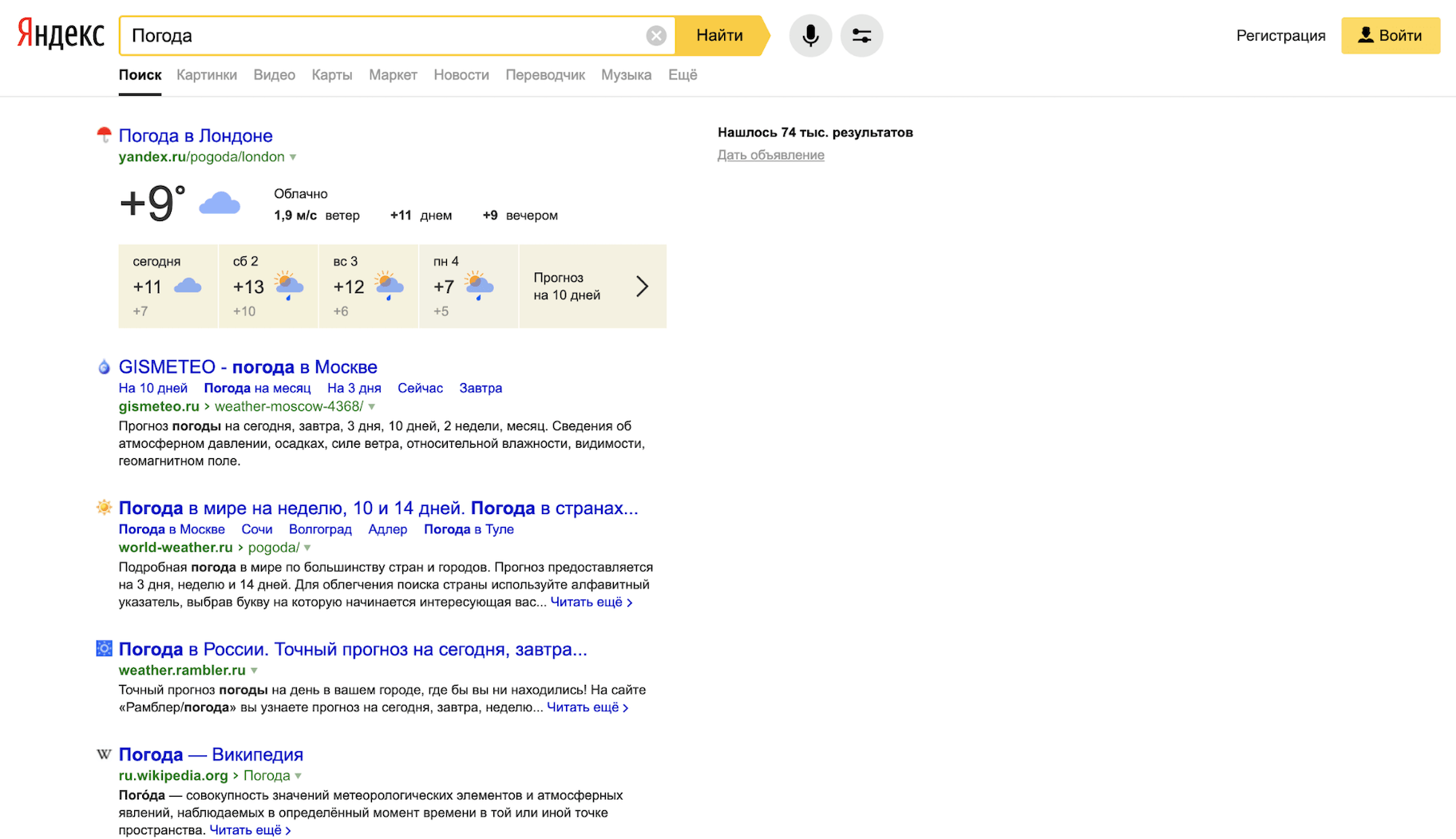
Back in 2011,Yandex went publicon the New York Stock Exchange with an initial public offering (IPO) of 1.3 billion – making it the second largest in the sector after Google at the time.
Search Engine #6. Ask
Worldwide Search Engine Market Share:0.72%

Askis the sixth largest search engine in the world with a 0.72 percent market share – 100 times smaller than Google and 10 times smaller than Bing.
Founded in 1996 by Garrett Gruener and David Warthen in California, the site was originally named “Ask Jeeves.”
他们的想法是创建另一个目录或search engine, but a question-and-answer service much like a virtual concierge. This is why the founderschose the nameafter P.G. Wodehouse’s character, Jeeves the butler.
The company dropped “Jeeves” from the name in 2006 when the company rebranded to “Ask.”

In 2010, Ask.comgave up on the search engine marketafter facing insurmountable competition from more successful search engines like Google.
Now, Google actuallypowers Ask.comsearch results.
Search Engine #7. DuckDuckGo
Worldwide Search Engine Market Share:0.39%

DuckDuckGois the seventh largest search engine with a 0.39 percent share of the global market.
This search engine is all about privacy.
These days, there are countlessGoogle privacy concerns. The giant is well-known to track, monitor, and collect reams of data about its users.
So if you feel a little uneasy about your data being harvested and stored, or you don’t liketargeted advertising, you might want to give DuckDuckGo a chance.
The search engine’s tagline is “Privacy, simplified.”

It describes itself as, “The Internet privacy company that empowers you to seamlessly take control of your personal information online, without any tradeoffs.”
Sounds pretty good, right?
DuckDuckGo doesn’t store your personal information or follow you around with ads.
This means that if you look at a pair of shoes, you won’t have to spend the next two weeks being bombarded with shoeadvertisements.
There’s even a handyGoogle Chrome extensionto make switching easier.
Essentially, it’s the perfect solution for anyone concerned about keeping their personal information and browsing activity private.
DuckDuckGo now receives27.4 million daily search queriesand it’s consistently growing.

Worldwide Search Engine Market Share:0.13%
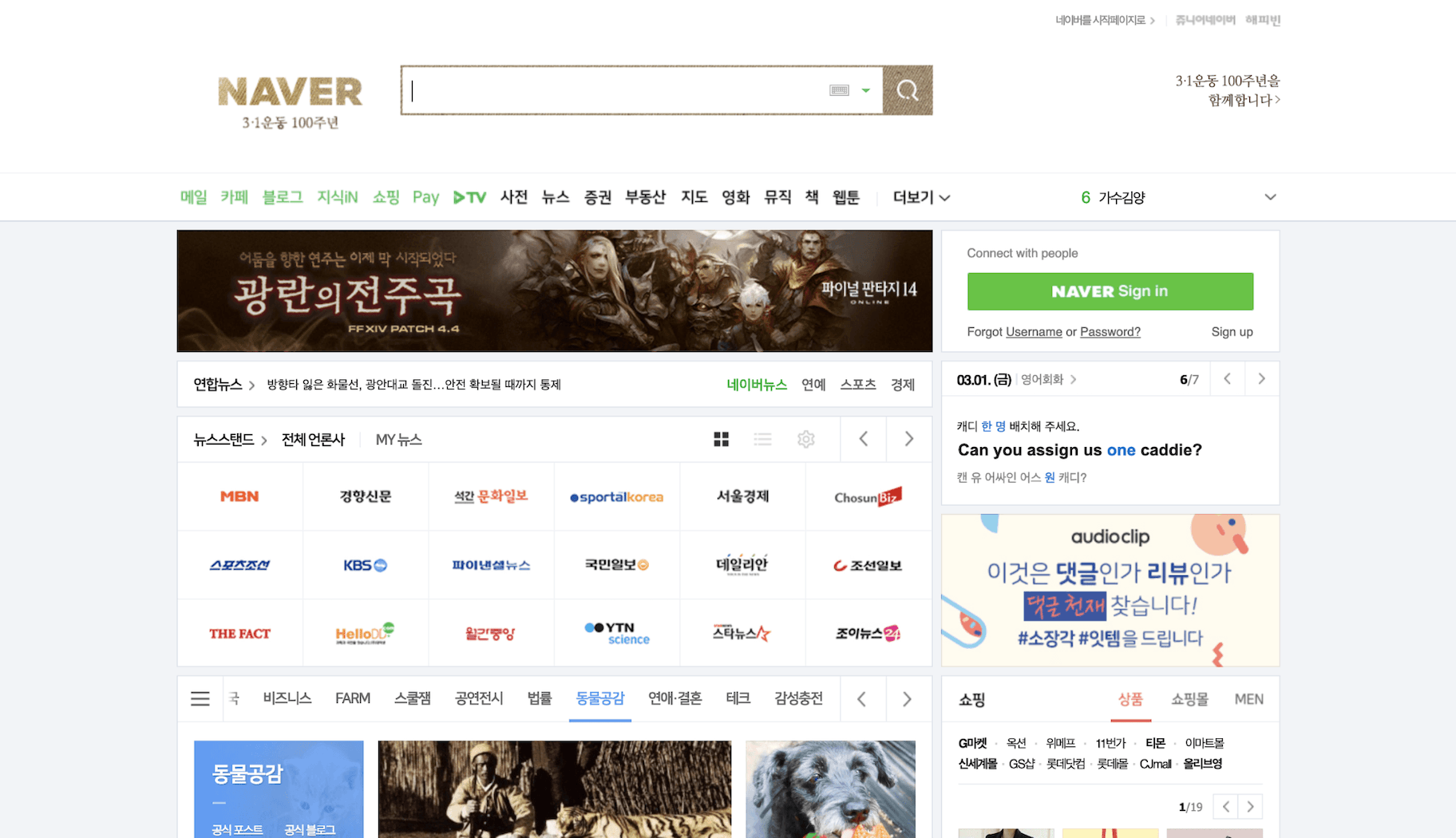
IntroducingNaver, the eighth most successful search engine in the world with a 0.13 percent market share.
This popular Korean search engine holds75 percent of the market sharein South Korea. As a result, it’s often referred to as “The Google of South Korea.”
Naver began in 1999 as the first web portal in Korea to develop and use its own search engine. Today, the Naver corporation provides a multitude of services, such as anemailclient, encyclopedia, children’s search engine, and news web portal.

As popular as the search engine is in South Korea, it seems unlikely that the search engine willgrow internationallyin the near future.
Search Engine #9. AOL
Worldwide Search Engine Market Share:0.06%

AOLcurrently holds just 0.06 percent of the world’s search engine market share. This is surprising when you consider that AOL was once an internet trailblazer.
AOL – short for “America Online” – first came into existence way back in 1985.
The web portal and online service provider based in New York City was one of the early pioneers of the internet in the mid-1990s.
Itoriginally provideda dial-up service, web portal, email, andinstant messaging.

如果你不来拨号实习经验et, it was a time when you literally had to dial-in using a phone line to connect.
It was always an exciting moment.
Those of us old enough to remember dial-up will recall the glorious and unmistakable sound of the phone line connecting…
In 2000, AOL bought the traditional media icon Time Warner for $165 billion.
AOL was on top of the world.
Around this time, AOL had its own branded search enginecalled NetFind, which was renamed “AOL Search” in 1999.
However, over time, AOLlost its dominanceof the internet as new competitors like Google swamped the market.
So AOL turned its attention to acquiring major online media companies.
It acquired TechCrunch in 2010 for $25 million, purchased The Huffington Post for $315 million in 2011, and acquired many more recognizable internet brands.
Then in 2015, AOL was acquired by Verizon Communications for $4.4 billion.
Today, AOL Search lives on, but it’s only a tiny fragment of AOL and Verizon’s business.

Search Engine #10. Seznam
Worldwide Search Engine Market Share:0.05%

Last on our list of the top search engines in the world isSeznam.
This search engine and web portal is hugely popular in the Czech Republic. In fact, it was the leading search engine there until Google came along.
Today, Google holds84 percent of the Czech Republic’smarket share, leaving only 16 percent to Seznam and others.
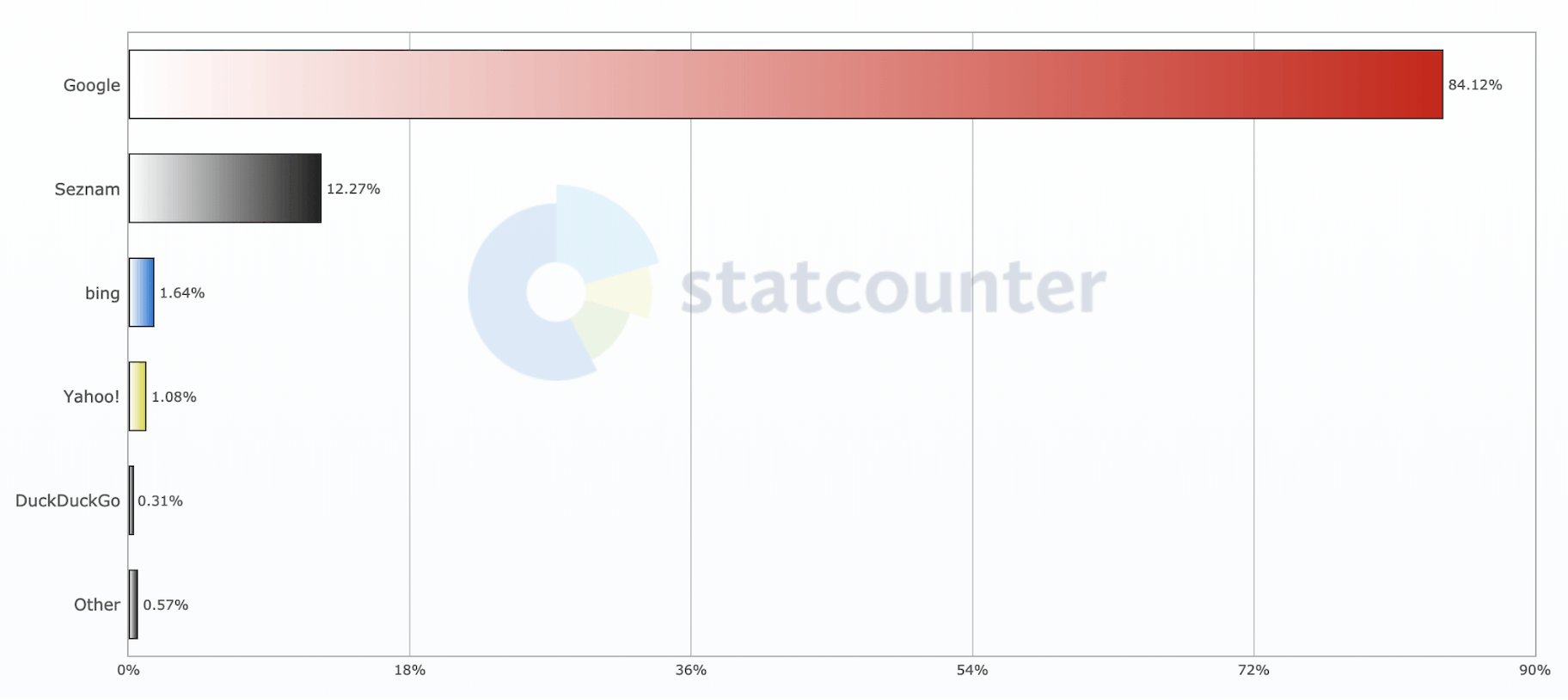
Seznam was founded in 1996 by Ivo Lukačovič in Prague.
It began as a simple search engine and online directory. By 2001, Seznam had developed financial, social, and political news, as well as TV programs, dictionaries, maps, weather forecasts, and more.
Today Seznam runs more than 15 different internet services and associatedbrands.
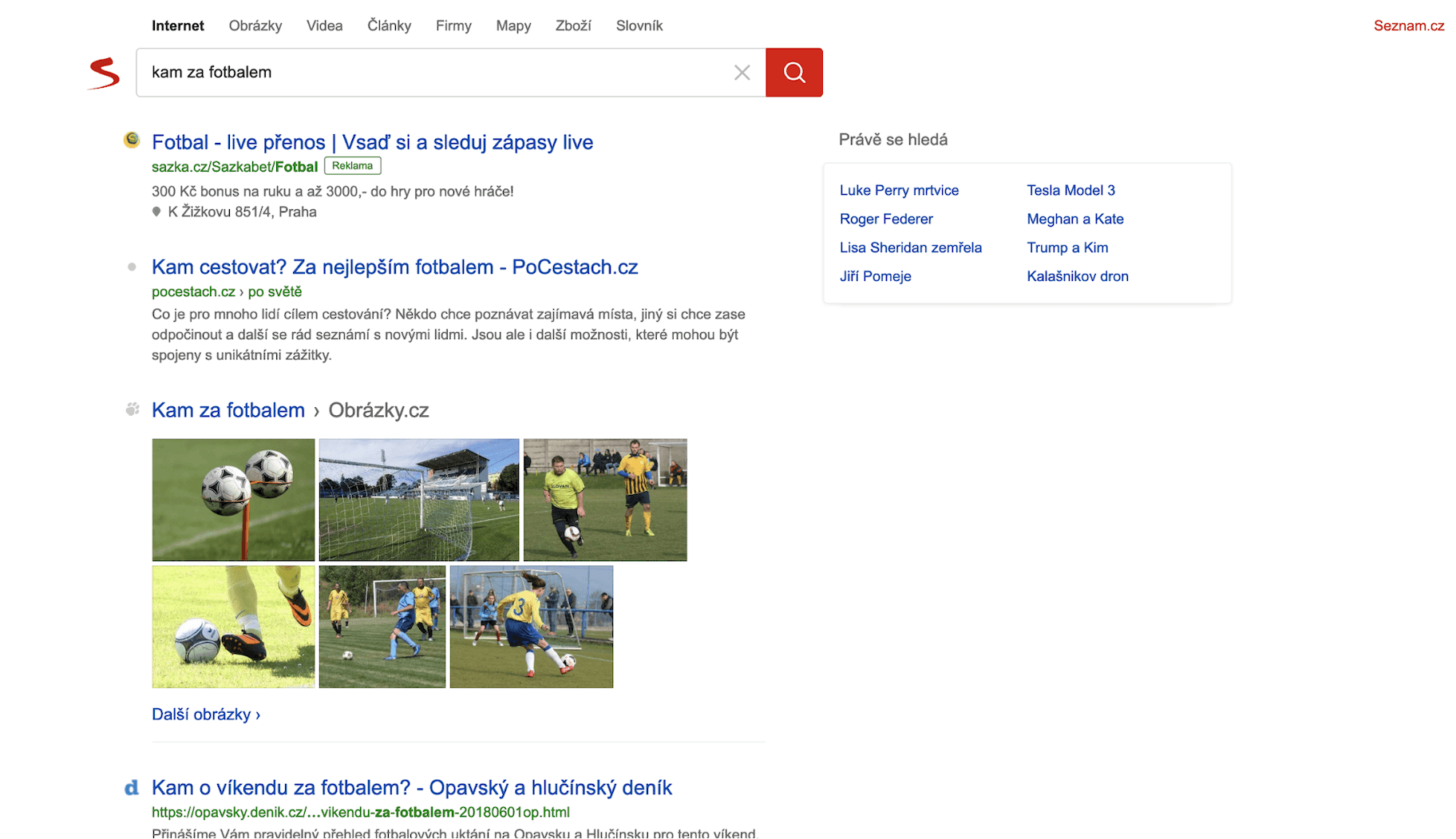
Bonus Search Engine: Ecosia

It might not be one of the most popular search engines in the world, but we feelEcosiadeserves a special mention.
This search engine is based in Berlin, Germany, and uses themoneyfromadvertisingto plant trees around the world to benefit people, the environment, and local economies.
This means that just by using the search engine, you can contribute to the environment.
Awesome, right?
Ecosia’s homepagekeeps score of the number of trees planted by Ecosia users – 51 million and counting at the time of writing
Plus, the search engine provides an individual counter that tells you how many trees your searches have planted.
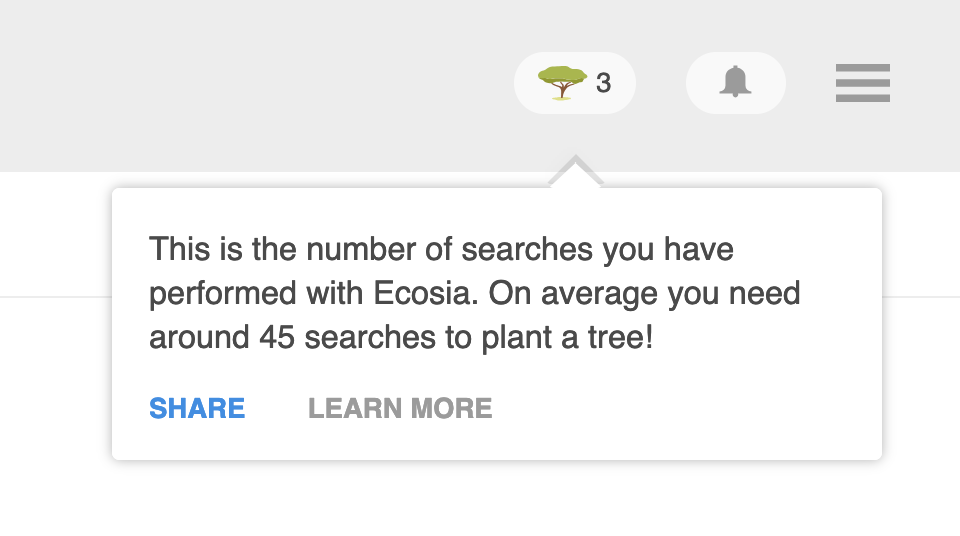
Ecosia is a great search engine too.
Its search results and adsare powered by Microsoft Bing, “enhanced with Ecosia’s own algorithms”.
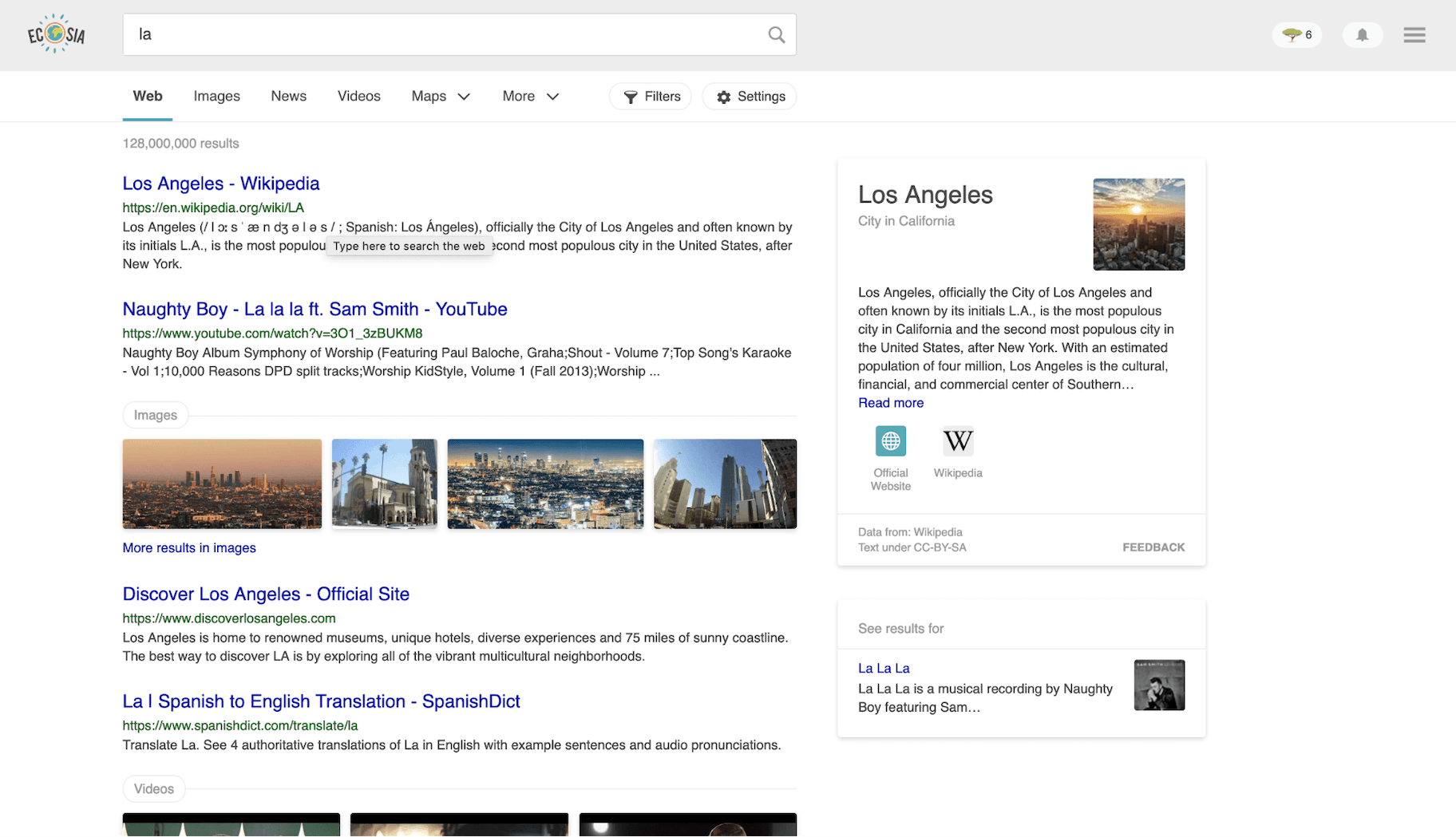
Like DuckDuckGo, Ecosia also focuses on privacy.
This search engine doesn’t store your searches permanently, use external trackingtools, or sell your data to advertisers.
Your searches are encrypted and you can simply turn offallof Ecosia’s tracking if you want.

What’s more, thecompany is extremely transparentabout how it spends itsmoney, releasing regular financial reports.
In October 2018, founder Christian Kroll gave some of his shares to the Purpose Foundation.
As a result, Kroll and Ecosia co-owner Tim Schumacherforfeited their rightsto take profits out of the company or sell Ecosia for a profit in the future – talk about putting your money where your mouth is.
Ecosia also has aChrome extensionto make switching easy.
Summary
It seems likely that this list of the top 10 search engines in the world will change in the coming years.
Although one thing seems fairly certain: Google will have a long and fruitful reign.
To conclude, here’s a table of the top 10 search engines in the world as of January 2019 according toworldwide market share:

If you’re a Google user, would you consider using an alternative search engine, such asBing,DuckDuckGo, orEcosia? Let us know in the comments below!





